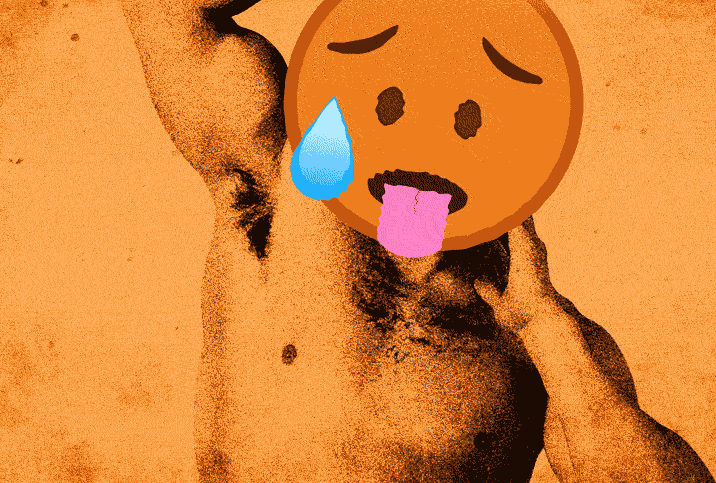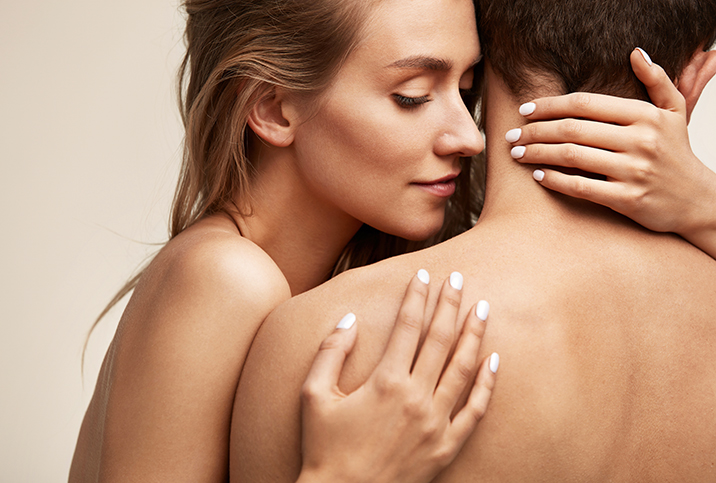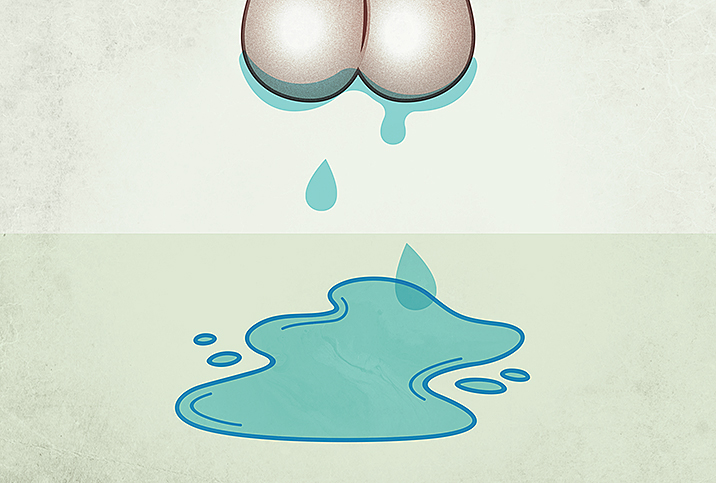What Should (and Shouldn't) Make You Perspire

We've all found ourselves damp with perspiration at various times, whether from exercise or just a reaction to a hot, sunny day. Though it's our body's natural way of cooling down, sweating above certain levels may go beyond what's considered healthy.
The science behind sweat
The human body has an average of 3 million sweat glands, categorized into two main types: eccrine glands and apocrine glands. Eccrine glands are dispersed across most of the skin's surface, whereas apocrine glands are located only in areas with hair.
"Sweating due to heat is from the eccrine glands and is the main cause of sweating," said Madeline Calfas, R.N., and founder of skincare company The Wellness Group, based in the state of New South Wales, Australia. "Sweating caused by being nervous or overly excited is caused by stimulation of the apocrine glands."
Calfas added that only the apocrine glands release body odor (BO), because they combine with bacteria in sweat glands or the surrounding area; eccrine glands produce odorless sweat.
Sweat can be produced due to a variety of causes, all of which are subconscious, noted Latonya Fore, a certified nurse practitioner in Cleveland.
"Your autonomic nervous system controls your sweating function," Fore explained. "This is the part of your nervous system that functions on its own, without your conscious control."
According to Fore, the three types of sweating are:
- Thermal, which maintains our body temperature
- Emotional, which occurs during times of fear, stress, anxiety or pain
- Gustatory, which occurs after consuming food or drinks that are spicy or raise the metabolism
Sweating and sex
By and large, the purpose of sweating is to regulate body temperature, as the salt-based fluid provides a cooling effect upon evaporation, which promotes thermoregulation, Fore said. Additionally, sweat contains pheromones, which stimulate desire and arousal.
"When we are attracted and aroused by another person, that can stimulate the apocrine glands, and this can result in the production of sweat," Calfas said.
She also noted that the greater supply of blood to the organs and skin that coincides with sexual contact, and the subsequently increased body temperature, can overstimulate the eccrine glands, too.
The quantity and frequency of perspiration vary throughout the day. Certain people are more prone to sweating, including perimenopausal women who experience "hot flashes," people with secondary medical conditions (or who take medications that have sweating as a side effect) and adolescents starting puberty.
Apocrine sweating is more common in people who are anxious, said Eva Lane, founder of Australia-based Anxious Relief, which offers guided meditation and reiki. She pinpointed stress as a risk factor of elevated sweating, especially in social situations.
The most common areas of sweating on the body include armpits, feet, the face and the soles of the feet, Fore said. Body areas that don't sweat include lips, hair and nails.
Calfas pointed out that the palm of the hand and the back are also common locations of perspiration. The forehead is another frequent source of sweat, said Sunmi Chew, vice president of clinical education and training for miraDry, a device designed to reduce sweating in as little as one hour. The company is based in Santa Clara, California.
If you notice the amount of perspiration you're producing is not in line with current activity, or if anything about your sweat changes—such as odor or location—there may be something wrong.
"Abnormal sweating is when it gets to be excessive and uncontrollable," Chew said. "Medical attention can be considered to seek temporary and permanent options."
When sweat becomes a problem
It's perfectly normal to get sweaty on a hot day or if you are afflicted with athlete's foot, but it's not normal to sweat while you're sedentary or in a swimming pool. If that's the case, hyperhidrosis may be why.
Hyperhidrosis comes in different forms, and at least one episode each week of unprovoked, troublesome, excessive sweating must occur for a diagnosis. Focal hyperhidrosis, also known as primary hyperhidrosis, is localized to specific body parts; the generalized, or secondary, type affects the person from head to toe. Causes of primary hyperhidrosis remain unknown, but secondary cases occur as a result of a different condition being the trigger. According to Lane, anxiety and elevated cortisol levels are noteworthy secondary factors, while Chew identified hypertension and hyperthyroidism.
This can be especially problematic when paired with stress.
"People who sweat excessively can often feel self-conscious and less confident in themselves," Lane said. "This can have a knock-on effect on their happiness and sexual well-being. When people are anxious, they are often less likely to be interested in sex or intimacy."
'People who sweat excessively can often feel self-conscious and less confident in themselves.'
The sweat glands contain certain nerves that signal when the body should stop sweating. Hyperhidrosis occurs when these nerves malfunction, so perspiration continues or starts when it's not needed.
On the opposite end of the spectrum, people with hypohidrosis (also called anhidrosis) sweat very little or not at all. Chew said these poorly functioning sweat glands can make it difficult for the body to cool down.
"This can be due to medications, damage or trauma to the skin that has resulted in damage to the sweat gland, nerve injuries or a genetic condition," Calfas stated. "It puts your body at risk of overheating, which, in a worst-case scenario, can lead to heatstroke, coma and even death."
She said dehydration is another cause of anhidrosis, so it's a good idea to replenish fluids and electrolytes. Fore pointed out anticholinergics as one drug classification known to cause anhidrosis; in fact, they are actually often prescribed for severe cases of hyperhidrosis.
Managing sweat
Oftentimes, hyperhidrosis and its related afflictions can be managed with nonsurgical treatments and lifestyle adjustments. Antiperspirants act by blocking sweat pores and can be bought over the counter. They are quite effective at sweat reduction and are frequently combined with deodorant.
"Excessive or no sweat can be embarrassing. Anyone concerned about their level of perspiration should see a dermatologist for a consultation," Fore advised.
Other remedies for excessive perspiration include regular bathing (preferably with antibacterial soap), using relaxation techniques, wearing breathable and activity-appropriate clothing, and adjusting your diet. Antibacterial soap reduces body odor, and relaxation practices control sweat-triggering stress. Light clothes are best for everyday wear, and moisture-resistant fabrics are good for activewear.
"Some people will change clothes throughout the day and take multiple showers, but this can hinder their normal daily activities," Chew said.
Caffeine and spicy foods cause perspiration, too, so limiting their consumption is another easy adjustment.
"If you are concerned about excessive sweating, it's best to speak with your health practitioner to rule out adverse side effects from medications or medical conditions," Calfas said. "If it is a big concern to you, there are treatment options that can help to reduce the overproduction of sweat in response to stimulation."


















